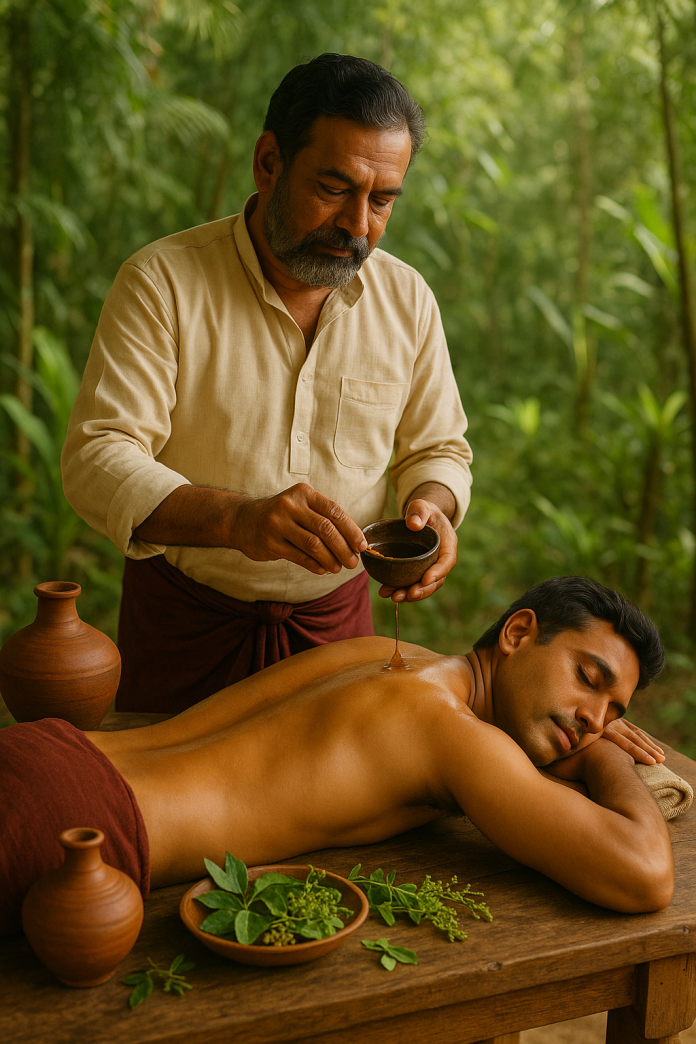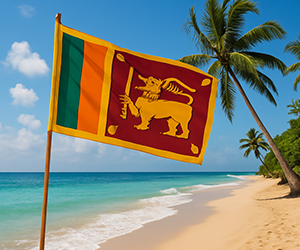1. Introduction to Sri Lankan Ayurvedic Medicine
Sri Lankan Ayurvedic medicine is a holistic system of traditional healing that has been practiced for over 3,000 years. Rooted in the ancient Vedic traditions and shaped by the island’s indigenous knowledge and Buddhist philosophy, this unique form of Ayurveda has developed a distinctive identity that sets it apart from Indian Ayurveda. Known locally as “Hela Wedakama,” it emphasizes balance, natural remedies, and personalized treatment methods.
Ayurveda in Sri Lanka is not just a method of treatment; it is a way of life. From dietary practices to daily routines, it permeates the cultural fabric of the country. It aims to treat the root cause of illnesses, not just symptoms, and restores harmony between the mind, body, and spirit. In recent years, there has been a resurgence in the popularity of Ayurvedic medicine, both among locals and international tourists seeking natural and effective alternatives to modern medicine.
2. Historical Roots of Ayurveda in Sri Lanka
The history of Ayurveda in Sri Lanka is deeply intertwined with its monarchy, religious institutions, and the natural environment. Historical records highlight that King Buddhadasa (340 AD), a renowned physician-king, was instrumental in systematizing Ayurvedic practices. He authored the medical treatise “Sarartha Sangrahaya” and established hospitals and botanical gardens for healing purposes.
Long before the arrival of formalized Ayurveda from India, Sri Lanka had its own indigenous system of healing known as “Deshiya Chikitsa.” This system utilized local herbs and spiritual healing methods passed down through generations. With the integration of Indian Ayurvedic texts and the influence of Buddhist monks who preserved these teachings in temple libraries, a hybrid but distinctly Sri Lankan form of Ayurveda emerged.
This evolution was also supported by the island’s rich biodiversity, which provided a wide range of medicinal plants. Today, many of these traditions are maintained by families who have practiced Ayurveda for centuries.
3. Principles and Philosophy of Sri Lankan Ayurveda
Sri Lankan Ayurvedic medicine operates on the foundational principles of balance and harmony. The system revolves around the concept of Tridosha – Vata (air and space), Pitta (fire and water), and Kapha (earth and water). These doshas govern physiological and psychological functions in the human body.
Health is maintained when the doshas are in equilibrium; disease arises when there is an imbalance. Diagnosis in Ayurveda involves understanding the patient’s doshic constitution (Prakriti), current imbalances (Vikriti), and lifestyle factors.
The philosophy also embraces the Panchamahabhuta theory (five elements: earth, water, fire, air, and ether), which states that all matter, including the human body, is composed of these elements. Treatments aim to restore balance through natural methods such as diet, herbal medicines, detoxification, yoga, and meditation.
4. Commonly Used Herbs and Plants in Sri Lankan Ayurveda
Sri Lanka’s tropical climate and fertile soil make it a haven for medicinal plants. Some of the most widely used herbs in Sri Lankan Ayurveda include:
- Gotukola (Centella asiatica): Used for enhancing memory, wound healing, and skin conditions.
- Neem (Azadirachta indica): Known for its detoxifying and antimicrobial properties.
- Kothala Himbutu (Salacia reticulata): Used in the treatment of diabetes and obesity.
- Belimal (Aegle marmelos): A digestive tonic commonly used as a tea.
- Polpala (Aerva lanata): Helps in urinary tract health and kidney stone treatment.
These herbs are often used in the form of decoctions (Kashayas), powders (Churnas), and herbal oils (Thailams). They are usually prepared in traditional methods that enhance their potency and healing properties. Seasonal variations also influence the type of herbs used and the treatments administered.
5. Popular Ayurvedic Treatments and Therapies in Sri Lanka
Sri Lankan Ayurveda offers a wide array of treatments, many of which are designed not only to cure diseases but also to promote rejuvenation and well-being:
- Panchakarma: A five-step detoxification process involving therapies like Vamana (emesis), Virechana (purgation), Basti (enema), Nasya (nasal cleansing), and Raktamokshana (bloodletting).
- Abhyanga (Herbal Oil Massage): A deeply relaxing massage using medicated oils to balance doshas and improve circulation.
- Shirodhara: Warm herbal oil is poured continuously on the forehead to treat stress, anxiety, and insomnia.
- Swedana (Herbal Steam Therapy): Opens pores and eliminates toxins from the body.
Each therapy is customized to the individual’s body constitution and health condition. Many treatments are also aimed at preventive care and overall vitality.
6. Ayurvedic Hospitals and Treatment Centers in Sri Lanka
Sri Lanka has a robust infrastructure for Ayurvedic healthcare. There are several government-run Ayurvedic hospitals, including the National Ayurveda Teaching Hospital in Colombo. These institutions offer treatments free of charge and are staffed by licensed Ayurvedic doctors trained in recognized universities.
Private wellness resorts and treatment centers have also flourished in areas like Hikkaduwa, Sigiriya, and Ella. These resorts combine luxury hospitality with authentic Ayurvedic treatments, attracting health-conscious tourists from around the world.
Practitioners, known as “Veda Mahattaya,” are highly respected figures in their communities. Many have inherited ancient knowledge passed down through family lineages.
7. Modernization and Government Role in Ayurvedic Medicine
The Sri Lankan government actively promotes and regulates Ayurvedic medicine through the Ministry of Indigenous Medicine and the Department of Ayurveda. These bodies oversee the certification of practitioners, standardization of medicines, and research initiatives.
Educational institutions like the Institute of Indigenous Medicine at the University of Colombo offer formal degrees in Ayurveda. Research into integrating Ayurveda with modern diagnostics and pharmaceuticals is ongoing, aiming to enhance its global credibility.
Ayurveda is also integrated into the national healthcare system, with Ayurvedic hospitals operating alongside allopathic medical facilities.
8. Challenges and Future of Ayurveda in Sri Lanka
Despite its rich heritage, Sri Lankan Ayurveda faces several challenges:
- Environmental Threats: Deforestation and urbanization have led to the loss of many medicinal plants.
- Over-Commercialization: The rise in demand has sometimes led to compromised treatment standards.
- Knowledge Transmission: The younger generation’s decreasing interest in traditional practices threatens continuity.
- Integration Issues: Bridging the gap between modern and traditional medicine systems remains a work in progress.
However, there is renewed interest in Ayurveda among both local and global audiences. With proper investment in sustainable practices and education, Sri Lankan Ayurveda can continue to thrive.
9. Tourist Perspective: Experiencing Ayurveda in Sri Lanka
Sri Lanka is emerging as a leading destination for wellness tourism. Tourists seeking holistic healing often opt for Ayurvedic retreats that offer full-body detox programs, yoga sessions, and dietary consultations.
Popular wellness destinations include:
- Barberyn Ayurveda Resorts (Weligama, Beruwala)
- Jetwing Ayurveda Pavilions (Negombo)
- Ulpotha Retreat (Embogama)
Many retreats offer tailored packages ranging from a few days to several weeks. These programs combine authentic treatments with scenic backdrops, making them a unique spiritual and physical healing experience.
10. Conclusion: Preserving Sri Lanka’s Ayurvedic Legacy
Sri Lankan Ayurvedic medicine is not just a tradition; it is a testament to the island’s rich cultural and natural heritage. As global interest in sustainable and holistic healing grows, Ayurveda offers valuable insights into preventive care and wellness.
Preserving this knowledge system requires a concerted effort from practitioners, policymakers, and the community. By investing in education, conservation, and ethical tourism, Sri Lanka can ensure that its Ayurvedic legacy continues to benefit future generations.
Whether you are a local or a visitor, experiencing Sri Lankan Ayurveda is not just a healing journey—it’s a reconnection with nature, tradition, and inner peace.




